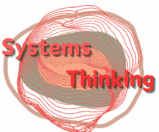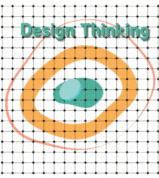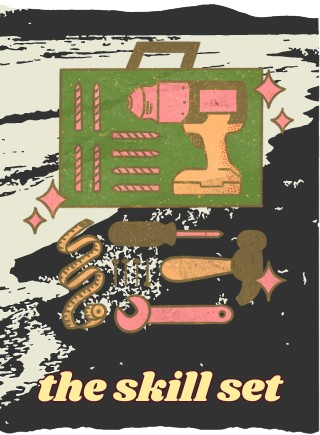Use these buildings blocks to help your child learn for the 21st Century
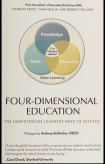 as explained by Four-Dimensional Education;
as explained by Four-Dimensional Education;
The world is constantly changing, and the skills needed to succeed are changing too. Explore the crucial skills children will need to navigate the future and thrive in an ever-changing landscape. We delve into skills like critical thinking, problem-solving, and creativity - all essential for adapting to change, embracing new technologies, and becoming lifelong learners. By playing games that include these concepts you will better support your child's ability to adapt to the future. The main component that we will try to encourage is something termed ACTIVE LEARNING, not passive learning of being told, but actual understanding and thus placed in the part of the brain that builds our construct of the world. Hand in hand with active learning we need the social aspect and the creative aspects (to learn by creating or recreating). The best format, as discussed in the book above, is learning in novel, real-world situations or resource-rich environments (that mirror real-life challenges).
- Global Literacy
- Information Literacy
- System Thinking
- Environmental Literacy
- Design Thinking and
- Digital Literacy.
- The Skill Sets
Global Literacy
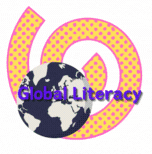 This is the reason we try to get our children to learn a foreign language! The pursuit of a foreign language is not merely an exercise in memorizing vocabulary or mimicking pronunciation. It's a vibrant tapestry woven from threads of empathy, understanding, and a profound respect for the kaleidoscope of human experience. By venturing beyond the borders of our native tongue, we embark on a journey that transforms us from insular observers into compassionate citizens of the world. We know that understanding foreign languages and cultures makes us more well-rounded, less bias, more able to see a bigger picture. It also helps us understand that our perspective, in the world, is not the only one out there and that the same histories, wars, traumas, victories and accomplishments are viewed differently, depending where your seat at the table is. This shift in perspective is not merely intellectual. It's a seismic awakening that shatters the comfortable confines of our preconceptions. We discover that history, war, trauma, and even joy dance to different rhythms depending on where you stand. The hero of our narrative might be the villain in theirs, and the familiar narrative of "us" versus "them" dissolves into the shimmering mirage of shared humanity.
This is the reason we try to get our children to learn a foreign language! The pursuit of a foreign language is not merely an exercise in memorizing vocabulary or mimicking pronunciation. It's a vibrant tapestry woven from threads of empathy, understanding, and a profound respect for the kaleidoscope of human experience. By venturing beyond the borders of our native tongue, we embark on a journey that transforms us from insular observers into compassionate citizens of the world. We know that understanding foreign languages and cultures makes us more well-rounded, less bias, more able to see a bigger picture. It also helps us understand that our perspective, in the world, is not the only one out there and that the same histories, wars, traumas, victories and accomplishments are viewed differently, depending where your seat at the table is. This shift in perspective is not merely intellectual. It's a seismic awakening that shatters the comfortable confines of our preconceptions. We discover that history, war, trauma, and even joy dance to different rhythms depending on where you stand. The hero of our narrative might be the villain in theirs, and the familiar narrative of "us" versus "them" dissolves into the shimmering mirage of shared humanity.
Information Literacy
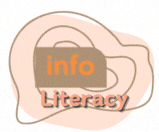 The amount of information now available online is vast to say the least. One main problem with the information is that sadly, it isn't all verified or true. On top of quantity and quality, there is the add difficulty of 'asking the right question' to parse out the exact information you are looking for. They must learn to be explorers, not merely passive consumers, of this digital landscape. The first step is awareness, a mindful understanding that not all information is created equal. We must teach our children how to explore information, be open in their ideas and aware of their biases. Curiosity will be their compass, guiding them beyond the familiar opinions and towards new perspectives. It is in this open-mindedness that critical thinking flourishes, where they learn to weigh evidence, to discern fact from fiction. We must listen to various sources, global as well as political, and we must maintain our optimism in the face of negativity and demoralizing nature of 'entertainment' and click-bait.
The amount of information now available online is vast to say the least. One main problem with the information is that sadly, it isn't all verified or true. On top of quantity and quality, there is the add difficulty of 'asking the right question' to parse out the exact information you are looking for. They must learn to be explorers, not merely passive consumers, of this digital landscape. The first step is awareness, a mindful understanding that not all information is created equal. We must teach our children how to explore information, be open in their ideas and aware of their biases. Curiosity will be their compass, guiding them beyond the familiar opinions and towards new perspectives. It is in this open-mindedness that critical thinking flourishes, where they learn to weigh evidence, to discern fact from fiction. We must listen to various sources, global as well as political, and we must maintain our optimism in the face of negativity and demoralizing nature of 'entertainment' and click-bait.
Systems Thinking
Systems thinking refers to the complexity of understanding needed to understand, change, modify or use systems in disciplines like scientific research, political agendas, analysis, urban planning, infrastructures, and so on. Although there is always a reductionist nature to our beginning understanding, that should not be a limiting point, but a springboard from which we move towards a better more well-rounded overview of the system itself. To do that we must understand the pieces, their functions, and how they work within a system. To build this type of understanding we must explore distinction, deconstruct ideas and reconstruct new concepts of part-whole interactions, understand interconnectivity, and view things from multiple perspectives.
Design Thinking
The future will demand a redesign and rethinking of major staples of our culture, like agriculture, energy, product design and manufacturing, governance, education and others. We don't have to go back to the way things were, because there is much that is better today than it was before, certainly for minorities and diversity.  However, we would be fools to look at how things are going and say 'ah, it is good, let's stop here.' The overabundance of consumerism, a glittering mirage in the desert of needs, beckons us to question its true purpose. Does it satiate our appetite, or merely fuel a bottomless pit of desire? The very nature of our trash, a monument to our fleeting whims, demands a reckoning. Is it a byproduct of progress, or a testament to our disconnect from the delicate balance of nature? From the overabundance of consumerism to the very nature of our trash, we must continue to redesign and reevaluate what is for our appetite and desires and what is for our empowerment and benefit.
However, we would be fools to look at how things are going and say 'ah, it is good, let's stop here.' The overabundance of consumerism, a glittering mirage in the desert of needs, beckons us to question its true purpose. Does it satiate our appetite, or merely fuel a bottomless pit of desire? The very nature of our trash, a monument to our fleeting whims, demands a reckoning. Is it a byproduct of progress, or a testament to our disconnect from the delicate balance of nature? From the overabundance of consumerism to the very nature of our trash, we must continue to redesign and reevaluate what is for our appetite and desires and what is for our empowerment and benefit.
Environmental Literacy
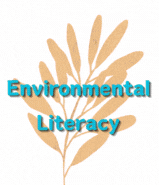 P21 defined: demonstrate understanding of environment and circumstances affecting it, particularly air, land, climate, food, energy, water and ecosystem. Understand social impact on the natural world. Investigate and analyze environmental issues, make conclusions, suggest plausible solutions. Take individual and collective action.
P21 defined: demonstrate understanding of environment and circumstances affecting it, particularly air, land, climate, food, energy, water and ecosystem. Understand social impact on the natural world. Investigate and analyze environmental issues, make conclusions, suggest plausible solutions. Take individual and collective action.
Digital Literacy
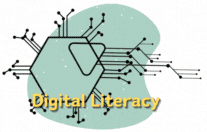 The digital age is here and not being afraid is one of the main factors that will determine wether we find our way in the world slowly or quickly. It is not that we must be early adaptors, run after every new innovation, or buy the latest toys. It has to do with understanding technology so that it is not a black-box that represents possibility without control or understanding. One key element is being comfortable with existing technologies, social media applications, internet searches, word processing, spreadsheets and the likes.
The digital age is here and not being afraid is one of the main factors that will determine wether we find our way in the world slowly or quickly. It is not that we must be early adaptors, run after every new innovation, or buy the latest toys. It has to do with understanding technology so that it is not a black-box that represents possibility without control or understanding. One key element is being comfortable with existing technologies, social media applications, internet searches, word processing, spreadsheets and the likes.
